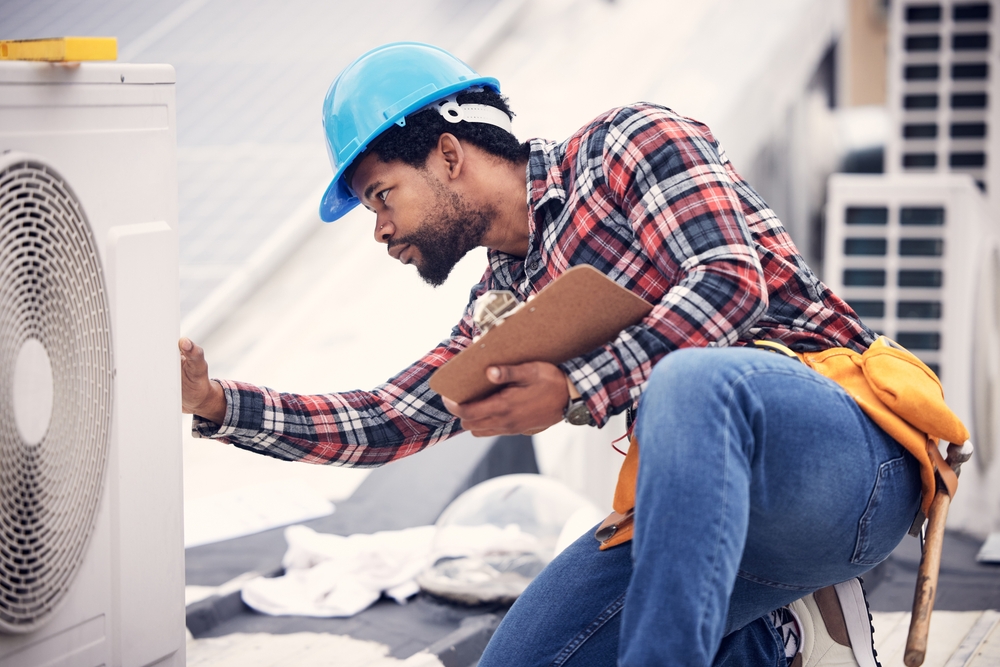What Are the Most Common HVAC Repairs?

A functional heating, ventilation, and air conditioning (HVAC) system is essential for the comfort of your home or office. However, just like any other mechanical system, your HVAC system can encounter issues and require repairs from time to time. Understanding the most common HVAC repairs can help you address them promptly, ensure the longevity of your system, and maintain a comfortable indoor environment.
This blog post will discuss some of the most common HVAC repairs that homeowners and businesses encounter. Whether you’re dealing with a Chandler HVAC repair or any other location, these insights will help you identify and address potential issues in your HVAC system.
1. Air Conditioner Compressor Failure
The compressor is the heart of your air conditioning system, responsible for pressurizing the refrigerant and facilitating the heat transfer process. Over time, wear and tear can cause the compressor to fail, leading to a malfunctioning air conditioner. This repair can be quite costly, as it often requires replacing the compressor unit altogether. However, regular maintenance and prompt repairs can extend the life of your compressor and reduce the risk of failure.
2. Refrigerant Leaks
Refrigerant is a vital component in the cooling process of your AC system. It absorbs heat from the indoor air, cools it down, and releases it outside. It is likely a refrigerant leak if you notice a significant decrease in cooling efficiency or warm air blowing from your AC vents. Low refrigerant levels not only impair your AC’s performance but can also cause damage to other components. Repairing a refrigerant leak requires professional assistance to locate the source of the leak, repair it, and recharge the refrigerant to its appropriate level.
3. Faulty Thermostat
A faulty thermostat can lead to inconsistent temperature control and discomfort in your home or office. It may cause the HVAC system to run longer than necessary, increasing energy bills. If you have an older manual thermostat, consider upgrading to a programmable or smart thermostat. Not only will this offer more precise temperature control, but it can also help you save energy and reduce utility costs.
4. Clogged Air Filters
Air filters play a crucial role in trapping dust, pollen, pet dander, and other pollutants, improving indoor air quality. However, over time, these filters can become clogged, restricting airflow and reducing the efficiency of your HVAC system. Regularly checking and replacing the air filters is a simple yet effective way to ensure optimal system performance. Most experts recommend replacing filters every one to three months, depending on the quality of the filter and the amount of debris present in your environment.
5. Ignition or Pilot Control Problems
If you have a gas-powered furnace, ignition or pilot control issues can prevent it from heating your home efficiently. Common problems include a faulty ignition system, a dirty pilot light, or a malfunctioning thermocouple. Unless you are well-versed in HVAC repairs, leave these issues to a professional technician who can accurately diagnose and fix the problem, ensuring your furnace operates safely.
6. Leaky Ducts
The ductwork in your HVAC system is responsible for distributing conditioned air throughout your home or office. Over time, the seals in the ducts may deteriorate, resulting in leaks and air loss. Leaky ducts not only reduce the efficiency of your HVAC system but can also lead to inconsistent indoor temperatures and increased energy consumption. Professionals can assess your ductwork, identify any leaks, and repair or seal them appropriately to optimize the performance of your HVAC system.
7. Airflow Obstructions
Blocked or obstructed airflow is a common issue affecting your HVAC system’s performance. Objects such as furniture, drapes, or debris can block vents or registers, hindering the proper circulation of air. As a result, your HVAC system may have to work harder to cool or heat your space, leading to increased energy consumption and potential damage to the system. Regularly checking vents and registers to ensure they are unobstructed can help maintain efficient airflow and prevent unnecessary strain on your HVAC system.
8. Blower Motor Problems
The blower motor distributes conditioned air throughout your home or office. Over time, it may encounter issues such as motor bearing wear, faulty belts, or electrical malfunctions that can hamper its performance. A malfunctioning blower motor will reduce the airflow, compromising the overall efficiency of your HVAC system. If you notice weak airflow or unusual noises coming from your HVAC unit, it is crucial to have a professional technician inspect the blower motor and make any necessary repairs or replacements.
Contact Us Today
Understanding the most common HVAC repairs can help you address issues promptly, ensuring a comfortable indoor environment and a well-functioning HVAC system. The range of repairs you may encounter can vary from air conditioner compressor failure to clogged air filters. However, regular maintenance, prompt repairs, and professional assistance can go a long way in mitigating potential issues and extending the lifespan of your HVAC system.
If you are facing any HVAC repair needs or require professional assistance, PlumbSmart is here to help. With our team of highly skilled technicians and commitment to customer satisfaction, PlumbSmart offers reliable Chandler HVAC repair services, along with the rest of the Phoenix Metro area. Visit our website to learn more about our services and schedule an appointment. Don’t let HVAC problems compromise your comfort – reach out to PlumbSmart today!
Proper maintenance and timely repairs are key to keeping your HVAC system running smoothly and efficiently. By addressing common HVAC repairs promptly, you can save money on energy bills, prolong the life of your system, and maintain a comfortable indoor environment all year round.
